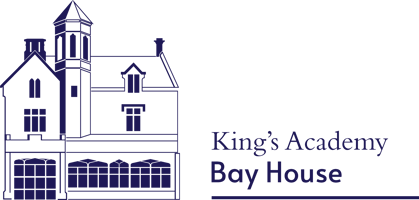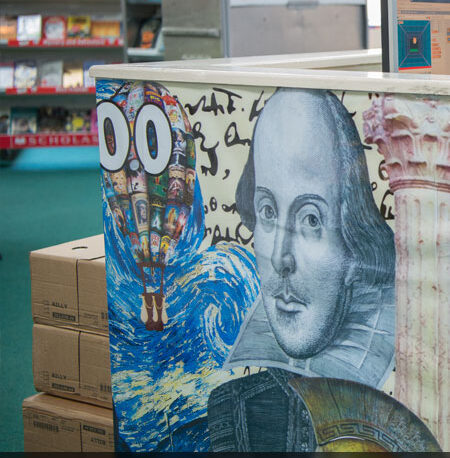English
English is a critical part of today’s education. We aim to help our learners develop into effective, articulate communicators, who have the skills to succeed in the 21st century.
Our innovative approaches, including the use of ICT in the classrooms, means that we are able to prepare students for the challenges and opportunities they may face in their future.
English can be divided into three key aspects of reading, writing and speaking and listening. We want to make sure that our students develop high levels of literacy and communication skills in each of these areas, for everyday life. A key part of doing this is to harness their imagination and creativity. This helps to develop a culture of explorative curiosity and open-mindedness that inspires students with a passion for words and an appreciation of their own and other cultures.
- Our drive is to create independent learners who are willing to take risks and willing to try new things.
- We aim to facilitate learning through exploration and discovery, and encourage pupils and students to take responsibility for their own learning.
- We want our learners to be cooperative, collaborative, reflective and able to self-evaluate. We will encourage them to do this through the creation of a supportive atmosphere that rewards effort as well as success.
- Above all, we want to make sure our lessons are engaging, and infuse our pupils with the enthusiasm and passion we feel for English.
Many of our A-level students choose to continue their English studies at some of the country’s most prestigious universities. We are very proud of our track record of results and work hard to maintain our high standards.
KS3
At KS3, pupils study a variety of units covering the new English curriculum to develop their skills and knowledge of reading, writing and oracy.
In Year 7, pupils begin the year by consolidating and building on the skills they learnt in KS2. In the Autumn term, pupils explore genre as part of a writer’s craft and study the dystopian novel, The Giver, by Lois Lowry. They will practise creative writing using sensory language and learn new figurative language techniques. In the Spring term, pupils will travel through time and explore literature from as early as the Ancient Greek Empire through to the 19th century, before they dive into the exciting world of literary villains, studying a range of villains through poems, ballads and novel extracts. At the end of the Spring Term, pupils will create their own superhero, using persuasive writing techniques to design and advertise superhero merchandise. In the Summer term, they study 19th-century short fiction and read Dickens’ famous novel, Oliver Twist. At the end of the year, pupils write their own short story set in a historical time period, combining all the skills they have learnt over the course of the year. Throughout the year, pupils will regularly visit the library for themed weeks, where they are encouraged to read for pleasure.
These skills are further consolidated in Year 8, where pupils start the year exploring what we mean by perspective and narrative perspectives, before moving on to study the novel The Bone Sparrow by Zana Fraillon. During the Autumn term, pupils will practise descriptive writing and formal letter writing. In the Spring Term, pupils will explore Renaissance literature and sonnets and will have the opportunity to write their own. In the second half of the term, they will study a Shakespearean comedy by reading and performing A Midsummer Night’s Dream. The Summer Term is centred around rhetoric. In the first half of the term, pupils study the history of rhetoric, dating back to Ancient Greece, before exploring a range of famous speeches throughout history and then constructing and delivering a speech of their own. During the second half of term, pupils delve into the world of media and learn to identify perspectives and bias in news articles. Throughout the year, pupils will regularly visit the library for themed weeks, where they are encouraged to read for pleasure.
In Year 9, pupils begin the year studying the Gothic by exploring the genre’s development over time, before reading The Woman in Black by Susan Hill. Just before the Christmas holiday, pupils will spend time writing a ghost story, a favourite Christmas tradition of the Victorian Era. In the Spring Term, pupils explore the role of the tragic hero in texts, before reading Othello by William Shakespeare. The Summer Term is centred around global literature. Pupils will experience a range of short stories, poetry and speeches from around the world. To celebrate the end of KS3, Year 9 pupils will write a short story that consolidates all they have learned at KS3.
Throughout KS3, pupils are developing and honing their knowledge and skills of reading, including reading for pleasure, in addition to their knowledge and skills of writing, including non-fiction and creative responses, and also speaking and listening skills. At the end of each year, pupils present a short speech to the rest of their class.
KS4
At KS4, all pupils follow the AQA GCSE English and GCSE English Literature course (2015 onwards). The course is assessed through 100% examinations: two for GCSE English Language and two for GCSE English Literature.
In Year 10, pupils begin the course with GCSE English Literature by studying the modern play ‘An Inspector Calls’. Pupils are then introduced to English Language Paper 1: Explorations in Reading and Creative Writing. Following this, pupils will also begin to study the ‘Power and Conflict’ poems from the AQA Poetry Anthology. Throughout the spring term, pupils will continue their study of GCSE English Language Paper 1 and finish studying the remaining poems from the Power and Conflict poetry cluster and comparing them. During the summer term, pupils will be introduced to the Unseen Poetry unit and Section B of GCSE English Langauge Paper 2. They will also prepare and give a speech on a topic of their choice, which forms the basis of their Spoken Language Accreditation. This is internally assessed before being moderated externally in Year 11, with pupils being awarded a pass, merit or distinction.
In Year 11, pupils start the autumn term with their 19th century novel for GCSE English Literature, such as ‘A Christmas Carol’ or ‘The Strange Case of Dr Jekyll and Mr Hyde’. They will also study GCSE English Language Paper 2. After this, pupils will focus again on the Unseen Poetry and revision of the texts they studied in Year 10. In the spring term, pupils will study their play by William Shakespeare, typically ‘Romeo and Juliet’ or ‘Macbeth’ and continue with GCSE English Language paper 2. Once this is finished, pupils will revise all of the texts they have studied in Year 10 and Year 11, in readiness for the summer GCSE English Literature papers. They will also revise Language Paper 1 and Language Paper 2, to prepare them for the GCSE English Language exam.
Throughout both GCSE courses, pupils will sit mini-mock assessments and Pre-Public Examinations (PPEs), which reflect the type of questions they will be given in the final examinations. These also allow pupils to experience formal exam conditions, so that they can build, develop and reflect on their exam knowledge, skills and techniques.

